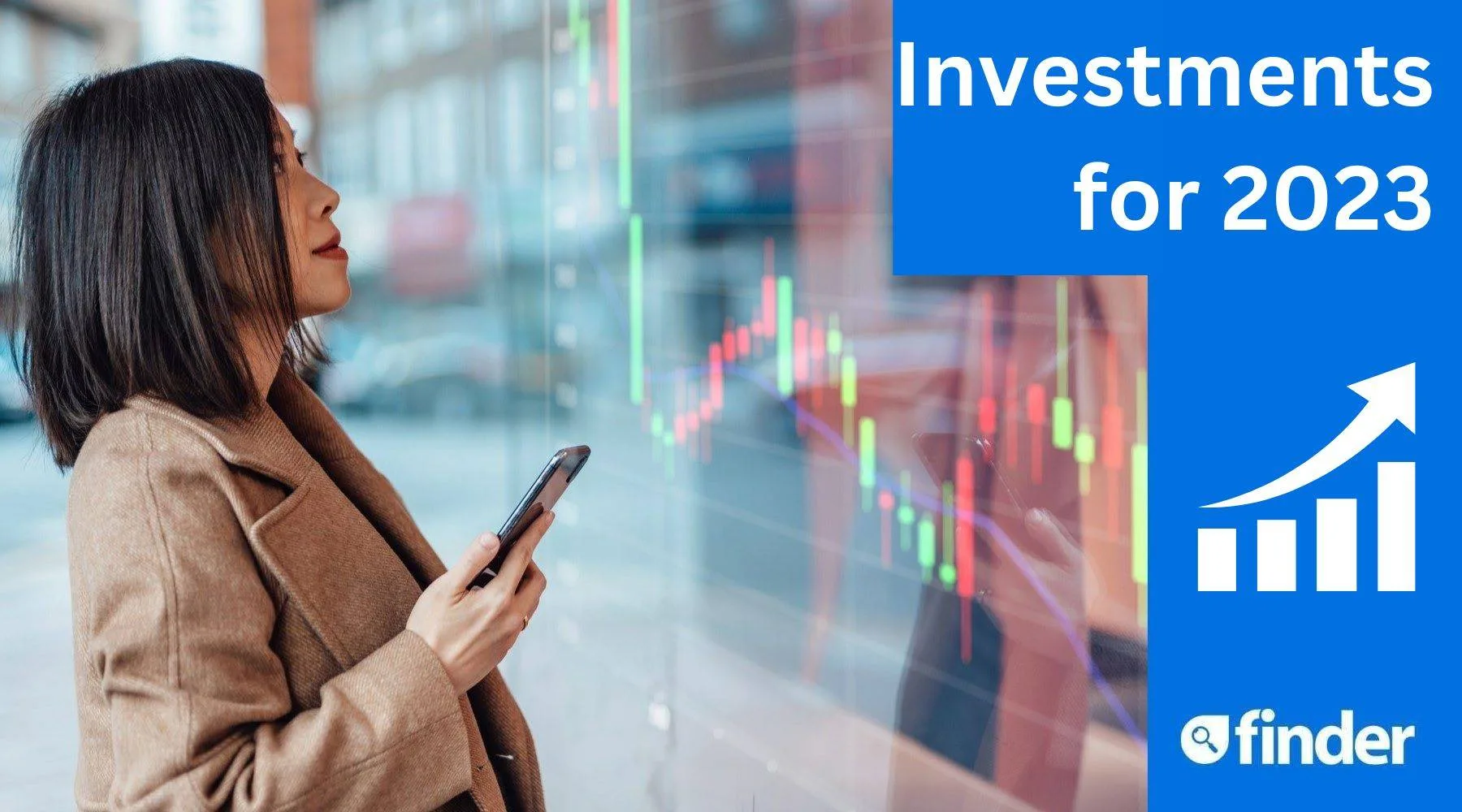5 investment options to try in 2023

Ready to build your portfolio this year? Here are some investment options to consider.
The rising cost of living pressures has meant that a growing number of Australians are paying more attention to their finances as the new year begins.
Investing in financial markets is one way to increase wealth over the long term. However, many people stay away because they find the investing process intimidating and confusing.
Here is a guide to the most common options that can be used by investors trying to get started in 2023.
Micro investments
Micro investing allows individuals to set aside small amounts of money for investment into a portfolio of stocks or exchange-traded funds (ETFs) through a platform or an app. This involves rounding up your everyday purchases to invest your spare change or the platform letting you transfer small amounts into an investment portfolio at regular intervals.
This type of investment tool is suitable for anyone looking for a cheap and convenient way to start building an investment portfolio. But because it requires a long time frame to build up any significant wealth, it is generally more suited to a younger demographic such as millennials or gen Z investors.
Micro-investing platforms also charge a number of fees that adds to costs and may eat into what you're saving or getting back in returns.
It is still a relatively new form of investing in Australia, with a limited number of micro-investment platforms available – including Raiz, Spaceship Voyager, CommSec Pocket, Sharesies and Pearler. These platforms charge either a small monthly subscription fee or a brokerage on a per-trade basis.
Shares
Investing in shares allows an individual to become a fractional owner of a business. There are 2 main ways to make money from shares; capital growth, where if you can sell shares for a higher price than what you paid for them, you make a profit; or dividends, which is receiving regular payments that shareholders receive based on the amount of profit the company has made.
Investing in share markets is one of the most popular ways to increase wealth, but it is generally considered more suitable for investors who have a higher risk appetite and a longer investment horizon because of its volatility.
Online share trading platforms such as IG, CNC, Superhero and eToro provide a cheap and easy option to buy and sell shares from Australia and overseas.
Share trading involves a number of charges including broker fees, which are charged every time you buy and sell shares, monthly fees in the form of ongoing subscription or inactivity fees and foreign exchange fees used to convert your Australian dollars to foreign currency if trading in global stocks.
Exchange-traded funds
An ETF is a bundle of shares or options that tracks a market index, a theme, a commodity or other assets. It is listed on a stock exchange and can be bought and sold by investors the same way you would buy and sell shares.
ETFs are an option for those just getting started with investing because they offer diversification which would otherwise take a long time to build if investing in individual stocks. They also allow cost savings as you're able to save on brokerage by buying units of a single stock instead of paying for multiple trades in shares of every company share you're interested in.
The main cost for investors is the ETF unit price, but an ETF trade also involves a management fee (typically lower than unlisted managed funds), brokerage fees whenever you buy or sell ETF units and for some types of derivative ETFs a buy/sell spread.
While ETFs are a great way to diversify a portfolio, they are subject to the vagaries of the market and as such are only suitable for investors with a high-risk appetite. ETFs also don't always exactly mimic the performance of the index they're designed to track. The investments may be subject to foreign taxes in some cases.
Savings accounts
A savings account is a type of bank account where you deposit your money so it can earn interest. Interest is calculated daily and paid monthly, although it is typically subject to a monthly deposit condition, which can act as a good incentive to keep growing your balance.
This type of investment option provides stable, low-risk income in the form of a regular interest payment, so it may be a good option if you're risk-averse or working on a short time frame. Unlike a term deposit, you can access the money in your savings account whenever you need.
The rate of interest for savings accounts is influenced by the Reserve Bank's cash rate, so the recent rate increases by the central bank have proven to be a silver lining for savings account holders. A number of savings accounts from different lenders now offer rates comfortably over 4% p.a.
While savings accounts are considered low-risk, investors still need to be careful about common traps such as having to meet conditions for higher interest rates or introductory rates that only last a short period. Keeping excessive amounts in savings accounts may also result in value being eroded by inflation over time.
Bonds
Bonds are an instrument to raise debt by any organisation in return for paying interest at regular intervals. They can be used to fund a number of government, corporation or even green projects. When interest rates rise, bond prices typically fall and consequently their yield or return goes up. As major central banks have lifted interest rates from rock-bottom levels, bond yields have started to rise around the world.
Bonds have a lower risk than stocks and pay a regular return, factors that become more important during periods of uncertainty. Bonds are considered low-risk investments because they're high up in the corporate structure – meaning in case of a liquidation, term deposit holders would be the first to be paid back, followed by bondholders. For comparison, shareholders are the last in line to be paid back.
Bonds provide a steady income stream and are considered a suitable investment option for older investors looking to preserve their wealth. They also provide excellent portfolio diversification.
Typical risks associated with bonds included a decline in interest rates or higher inflation, both of which can erode value. Bonds are also considered a sophisticated financial instrument with a majority of investors having an insufficient understanding of the product.
Looking for a low-cost online broker to invest in the stock market? Compare share trading platforms to start investing in stocks and ETFs.

Ask a question
